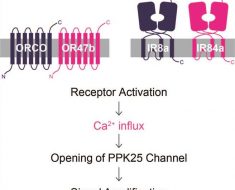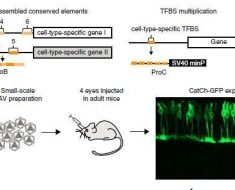A team of researchers from the CNRS and Université Nice Sophia Antipolis has just shown that a small molecule called methiothepin can inhibit the chemotherapy resistance of certain tumors. These results will be on the cover of the July 1, 2018 issue of International Journal of Cancer.
Cancerous tumors are also capable of “detoxing,” subsequently limiting the efficiency of chemotherapy. To better understand this phenomenon, a team from Institut de pharmacologie moléculaire et cellulaire (CNRS/Université Nice Sophia Antipolis) studied the Patched membrane protein, and showed that this protein is capable of expelling some of the primary active ingredients of chemotherapy from cancerous cells. The rejection of these toxic substances enables the tumor to eventually survive the treatment.
The Patched protein normally participates in embryonic development, but it is diverted as a tool for “detoxification” in numerous cancers: melanoma, adrenocortical carcinoma, colorectal cancer, breast cancer… After demonstrating that Patched actively contributes to resistance to doxorubicin, one of the medicines used in chemotherapy, researchers studied its inhibition through a small molecule called methiothepin.
Remarkably, a combination of doxorubicin and methiothepin eliminates tumors more efficiently than doxorubicin alone, both in vitro on cancerous human cells, and in vivo on these same cells grafted in mice. Researchers observed that methiothepin fostered the accumulation of the treatment in cancerous cells, as well as its efficiency. Finally, their research shows that the combination of two molecules does not increase the quantity of doxorubicin in the hearts of the mice studied, which is an important point, as this compound is known for its cardiotoxicity.
Source: Read Full Article





